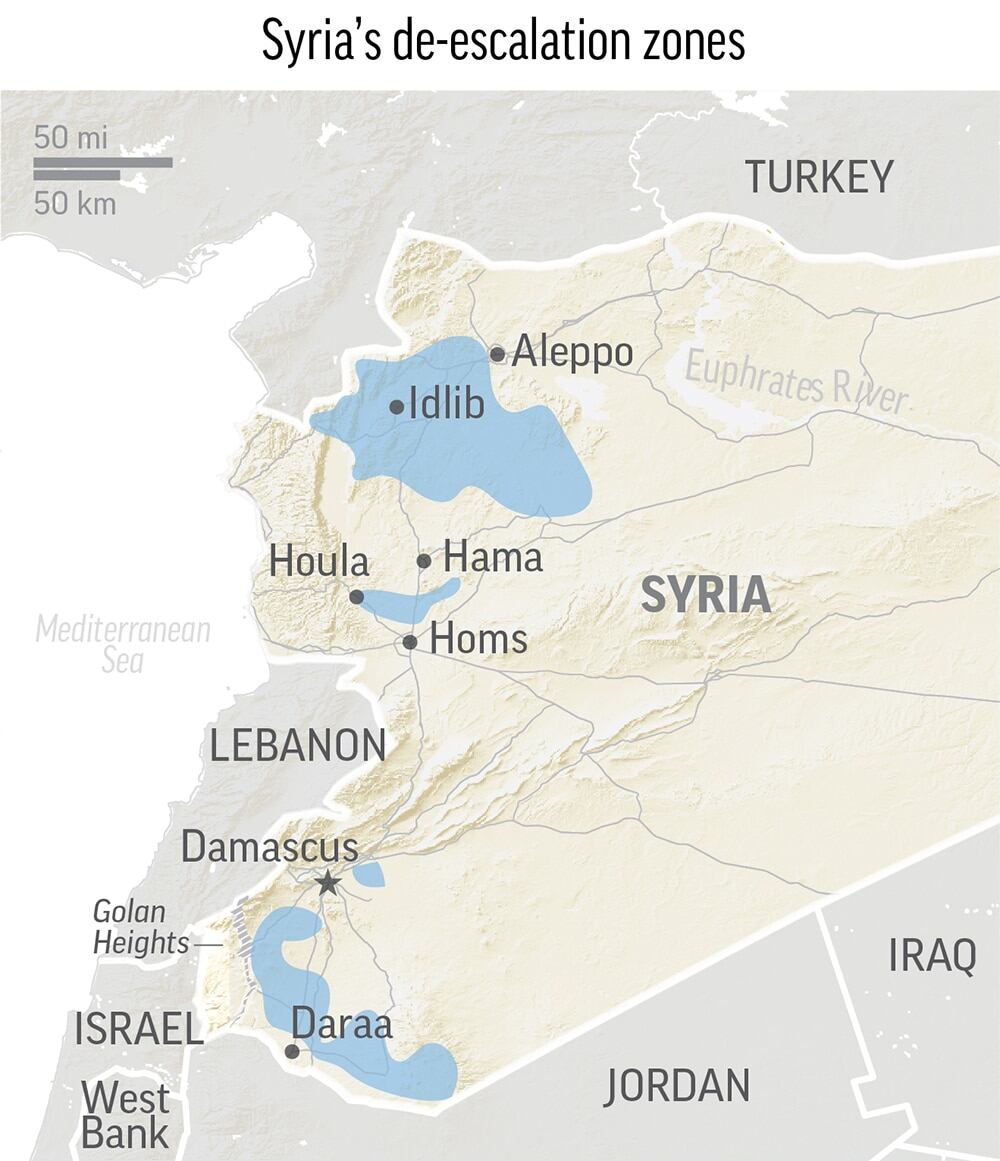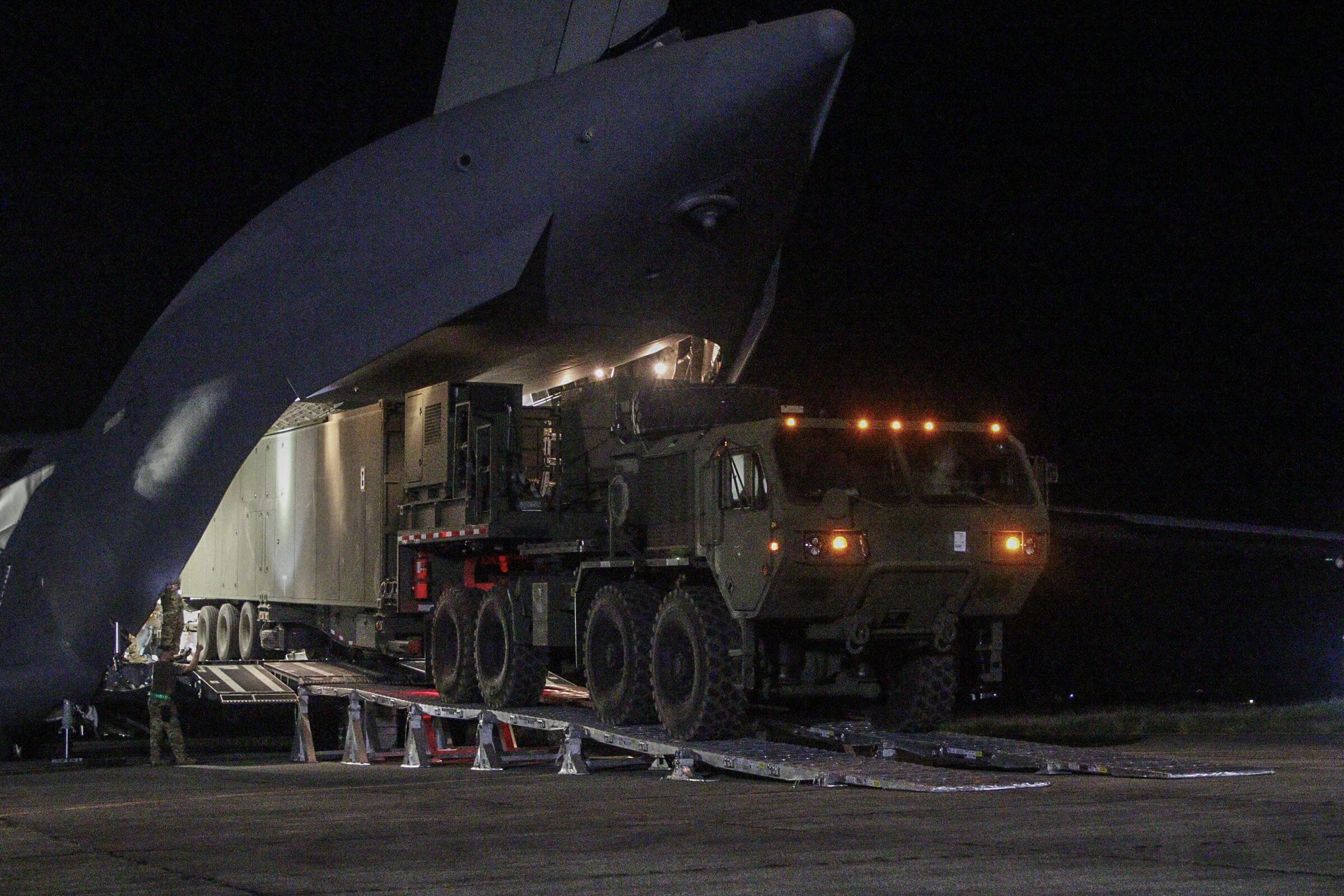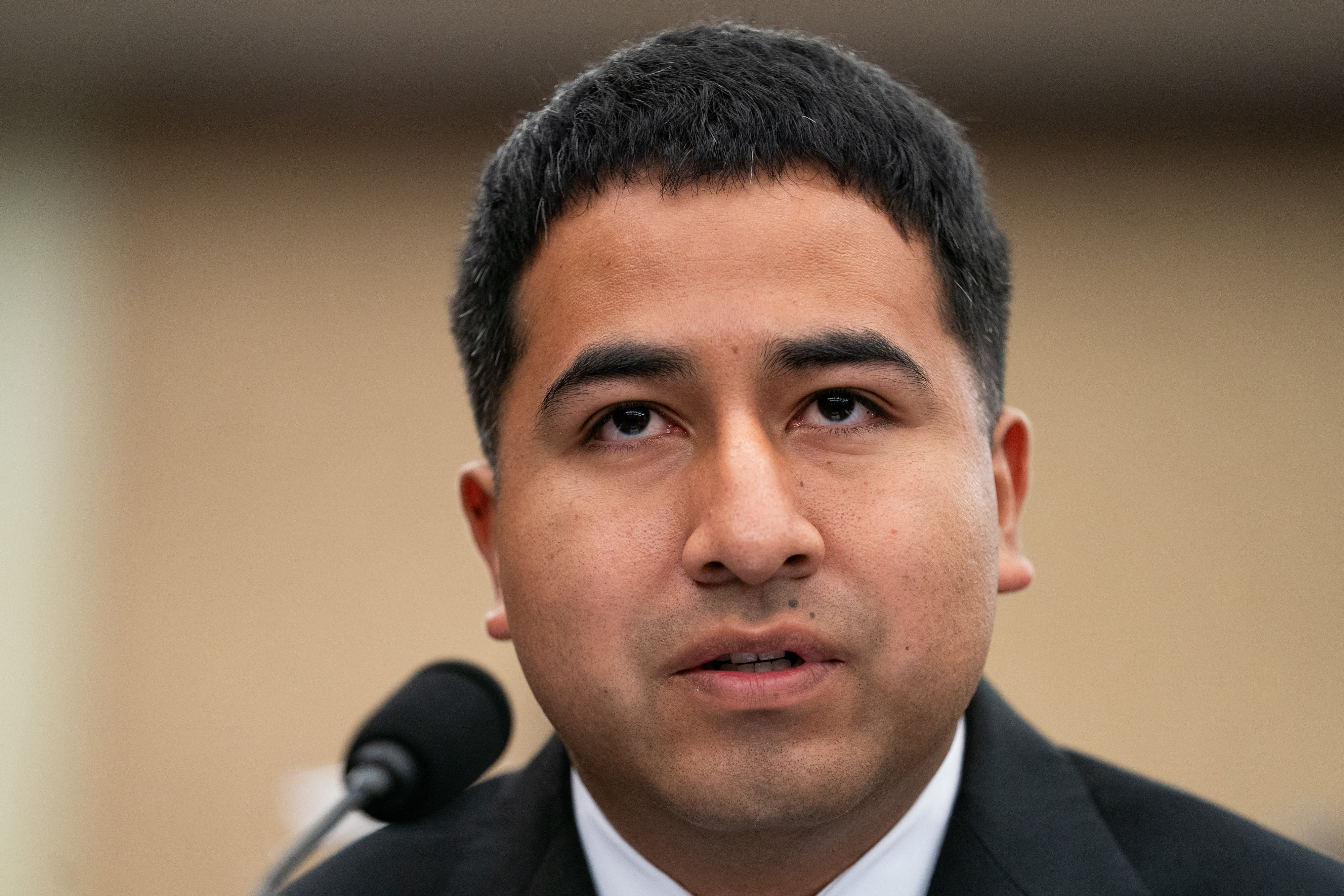The cease-fire deal went into effect over the weekend, bringing a general reduction in violence, but clashes continued, particularly in central Syria. There are still questions about how the agreement will be enforced.
Russia and Iran, which support Syrian President Bashar Assad, and Turkey, which backs the rebels, may deploy armed forces to secure the four so-called "de-escalation zones," in what would amount to unprecedented coordination between the three regional powers.

Four Russian-proposed safe zones across Syria.
Photo Credit: AP
The U.N. Security Council president says Russia wants a vote early this week on a resolution supporting the deal. Uruguay's Ambassador Elbio Rosselli told reporters "there are consultations ongoing" on the text.
Several other council diplomats said a vote Monday or Tuesday — as Moscow is seeking — is highly unlikely, explaining that they need details on the zones.
The United States is not party to the de-escalation agreement. U.S. Defense Secretary Jim Mattis said the U.S. would take a close look at the proposal for "safe zones" in Syria, but he said the plan poses many unanswered questions, including whether it would be effective.
"We'll look at the proposal, see if it can work," Mattis told reporters traveling with him to Copenhagen, where he will attend a meeting of the U.S.-led coalition battling the Islamic State group. "Will it affect the fight against ISIS? I think the international community is united in the sense of wanting to see ISIS put on its back foot."
Al-Moallem, Syria's foreign minister, said he hopes the agreement will, as a start, achieve a separation between Syrian armed opposition groups and extremist groups such as al-Qaida, saying the former must force the latter to leave the de-escalation zones.
But even if the agreement is enforced, it is unlikely to end the conflict. Despite several rounds of U.N.-mediated negotiations in Geneva, the government and opposition remain at odds over Assad's future role in Syria.
Al-Moallem suggested government forces' next target is Deir el-Zour, where ISIS militants are besieging parts of the eastern city that are under government control and are home to tens of thousands of people. He said the government aims to regain control of all of Syria, adding that areas bordering Iraq will be a priority.
Al-Moallem said the government's alternative to stalled negotiations has been the implementation of "reconciliation agreements" around the country.
Such agreements have seen the surrender of rebel-held areas to government forces and their allies, often after a prolonged period of siege, in exchange for safe relocation to opposition-held areas elsewhere in the country.
As the foreign minister spoke to reporters, hundreds of rebels and their families left aboard buses from a besieged opposition-held neighborhood of Damascus for rebel-held areas in the country's north, according to state TV and opposition activists.
The Britain-based Syrian Observatory for Human Rights said around 1,500 people were expected to leave the Damascus neighborhood of Barzeh on Monday, and more in the coming weeks. Syrian state TV said some 60 buses and ambulances of the Syrian Arab Red Crescent were on hand for the evacuations.
Barzeh came under siege last month, after government forces captured a major road near the area, separating it from rebel-held eastern suburbs of Damascus
.
Tens of thousands of people living in besieged areas around Damascus, Homs and Aleppo — Syria's largest city — have surrendered under similar agreements in recent months, agreeing to relocate in what critics have said amounts to forced displacement.
Associated Press writer Lolita C. Baldor in Copenhagen, Denmark, and Edith M. Lederer at the United Nations contributed to this report.





